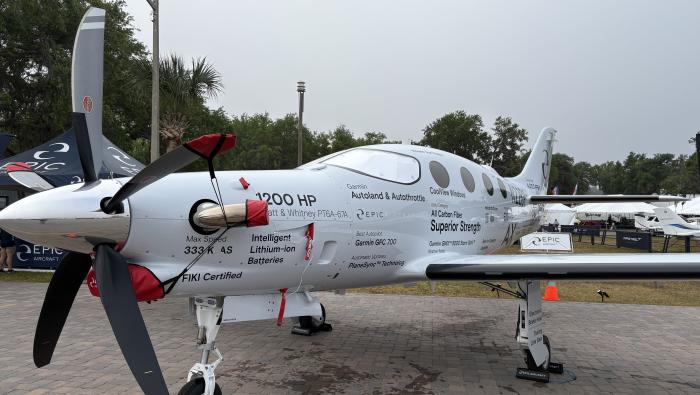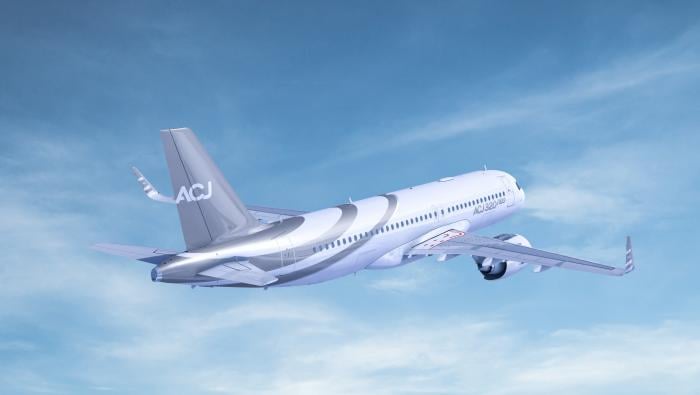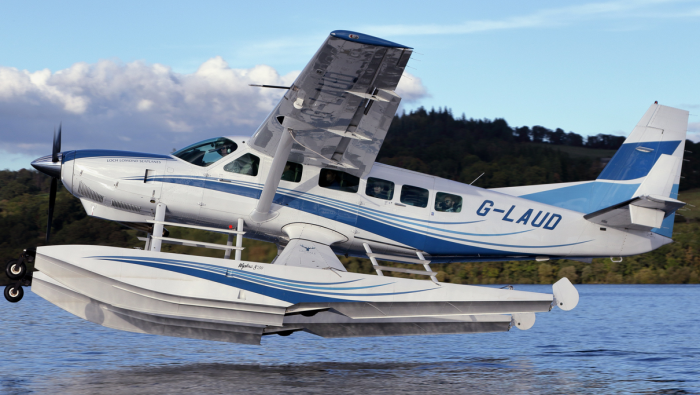The much-anticipated very light jet (VLJ) air-taxi market is beginning to take shape with operators gearing up for the start of service in the eastern U.S. and Europe. VLJ fractional ownership companies also have been formed in Canada and California, a sure sign that the era of the VLJ is about to begin in earnest.
Most of the prospective owners and/or operators have secured large fleet orders with relatively small deposits, which are sometimes not only fully refundable but also account for less than 5 percent of the total order value. Several of these new startup companies have admitted that they will need to tap deeply into capital markets to finance actual aircraft acquisitions and operations. Access to this capital so far has been limited as VLJs await final certification (the FAA certified the first two last month) and the market awaits the actual operation of at least one VLJ air-taxi company.
In May, Embraer announced an order for 50 of its $2.85 million Phenom 100s from previously unknown Zurich-based JetBird. The $140 million to $280 million order calls for deliveries to begin in 2009 and includes an option for 50 additional Phenom 100s. JetBird can also convert some or all of the delivery positions into orders for the larger $6.65 million Phenom 300. The company reportedly secured the order with a deposit of $5 million.
JetBird is directed by Domhnal Slattery, an Irish financier who previously headed what became the Royal Bank of Scotland’s aviation finance unit (RBS Aviation Capital), the world’s third-largest commercial aircraft leasing company. Seventy-five percent of the initial financing for the deal came from Claret Capital, a $300 million private equity fund directed by Slattery. The remainder came from members of JetBird’s Swiss management team, which includes former Swissair vice president Hans Jorg Hunziker. JetBird will require additional infusions from Claret of $20 million annually in 2008 and 2009 as well as substantially more financing from capital markets thereafter.
Initially, JetBird will be based in Geneva and Zurich with operations to be added later in German, Italy, France and the UK. JetBird plans to take deliveries of 20 aircraft per year between 2009 and 2014. Slattery, meanwhile, hopes to take the company public in 2013. He said he thinks he can do for executive charter what the Irish discount carrier Ryanair did for the airlines. (Slattery is a former executive at Ryan’s Guinness Peat Aviation and later cofounded the International Aircraft Management Group, which RBS acquired in 2001.)
Slattery said JetBird’s hourly rates, forecast to be about $2,500 for the entire aircraft, will be 50 percent lower than those of NetJets Europe-flown Cessna Citations.
While JetBird may be the first VLJ air-taxi service to announce plans for wide-scale European operations, there is no shortage of U.S.-based companies poised to enter the fray.
DayJet of Delray Beach, Fla., has the most aircraft on order of any of these proposed services and is the only one to offer per-seat, on-demand service, priced at an estimated $1 to $3 per seat per mile depending on the time of day and whether or not the flight is nonstop or one-stop. Customers will also be required to pay an initial $200 “membership fee.” DayJet flights will carry two pilots and one to three passengers.
DayJet has ordered 239 Eclipse 500s and has options for 70 more. An Eclipse in
DayJet livery is on static display at Orlando Executive Airport. Earlier this year, DayJet announced plans to start flight operations late this year or early next from five “DayPorts” in Florida–Boca Raton, Gainesville, Lakeland, Pensacola and Tallahassee–before expanding service throughout the Southeast.
Unlike its competitors, which require that the entire aircraft be chartered, DayJet will offer aircraft on a per-seat basis. Since 2002 the company has spent nearly $18 million on startup operations and developing sophisticated databases and “real-time” optimization programs that company cofounder Ed Iacobucci claims will enable this business model.
Earlier this year, Iacobucci said DayJet planned to seek an additional $135 million in the capital markets shortly after it began air operations. When contacted late last month, the company had no additional information about the status of this financing.
Houston-based Magnum Jet has placed large fleet orders for Embraer Phenom 100s and Adam A700s. Magnum was founded in partnership with FBO chain Million Air and has ordered 50 of each model with options for another 50 of each. Its initial financing has been provided by Proctor NBF Capital Partners.
Like DayJet, it will focus on operations close to its home base before expanding service to more distant points. However, unlike DayJet, Magnum will require customers to rent the entire aircraft, which will fly between predetermined city pairs. Magnum also plans to market its aircraft to individual investors who will in turn lease the aircraft back to Magnum. In that sense, the company will act as both an aircraft marketer and Part 135 operator. It plans to take delivery of its first Adam A700 next year. The Embraer will not be available until 2009.
Like Magnum, Stratford, Conn.-based Pogo will also require that customers pay for the entire aircraft on its flights, at least at first. Pogo had placed an order for 75 A700s with fully refundable deposits. However, cofounder Robert Crandall, the former CEO of American Airlines, has publicly said that he doubted that the A700 could meet Pogo’s requirements and CEO Cameron Burr subsequently has talked to other VLJ manufacturers including Cessna, Embraer and Spectrum about fleet orders. Pogo previously said it planned to start operations in 2009 and that the company was seeking additional capital.
Linear Air of Lexington, Mass., holds the distinction of being the only VLJ air-taxi company to date that actually conducts air operations, albeit with single-engine Cessna Grand Caravan turboprops. The company operates from Hanscom Field in Bedford, Mass.; Teterboro, N.J.; and White Plains, N.Y.; and San Juan, Puerto Rico.
In January, Linear Air announced that it had raised an additional $2.5 million to finance initial deposits on 30 Eclipse 500s. The company expects to announce an expanded service area before taking delivery of its first Eclipse early next year.
In addition to these VLJ air-taxi companies, several VLJ fractional ownership companies have emerged, including the Thousand Oaks, Calif.-based Jet-Alliance and OurPlane based in London, Ontario, Canada. OurPlane has ordered 20 Eclipse 500s that it plans to market with share prices starting at $329,900, monthly fees of $3,500 and an hourly rate of $369. Members who are qualified pilots may fly the aircraft themselves or OurPlane can arrange for crewing.
Jet-Alliance is marketing the Eclipse 500 in fractions that begin at one sixteenth for $95,000. That amount entitles the shareholder to 50 annual occupied hours.
To date, neither company has announced plans for a jet card program that would compete with the VLJ air-taxi companies.







